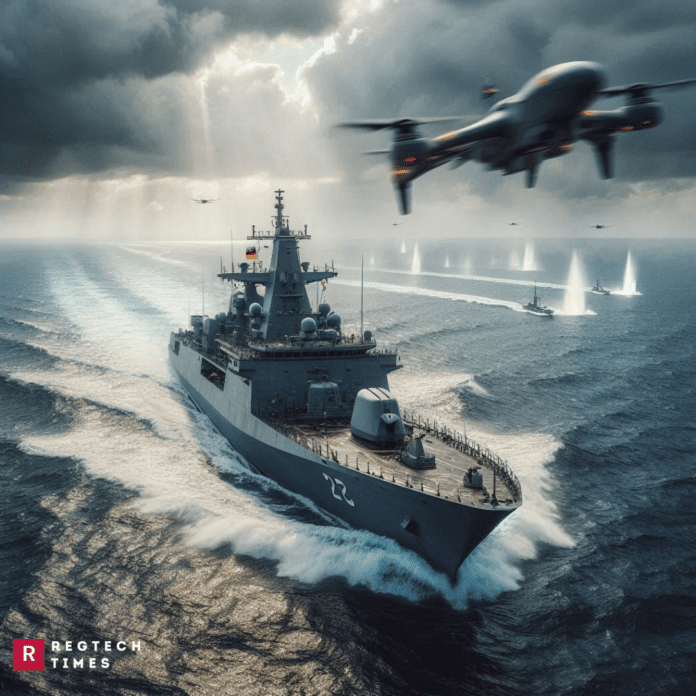Once considered weak in military strength, Germany has now taken a leadership role in defending the Baltic Sea. In the past, its military forces struggled with outdated equipment, even using broomsticks instead of real weapons during training exercises. However, those days are over.
Germany is now at the forefront of a NATO mission aimed at securing the Baltic Sea against potential threats, particularly from sabotage efforts. This mission operates under the Command Task Force Baltic (CTF Baltic), a NATO-led unit stationed in Rostock, Germany. The primary goal is to monitor the vast network of undersea cables and maritime infrastructure that play a critical role in communication and trade across Europe.
The Baltic Sea is a busy waterway, with thousands of ships crossing it daily. However, recent incidents of sabotage have raised concerns. Multiple undersea telecom cables have been mysteriously cut, disrupting communication between key European countries. Investigations suggest that these incidents may be linked to foreign intelligence operations, though the parties involved deny any wrongdoing.
Germany’s leadership in this operation sends a strong message. The country, now boasting the largest NATO naval presence in the region, is taking responsibility for ensuring security in these waters. This shift marks a turning point, demonstrating that Germany is no longer hesitant about defending Europe.
Countering Maritime Threats in the Baltic
Sabotage at sea is not always easy to identify. Sometimes, damage to undersea infrastructure can happen due to accidents, but in other cases, it may be intentional. Germany’s naval forces are actively monitoring ships and responding to suspicious activities.
One of the biggest challenges is determining whether a ship is involved in deliberate sabotage or if it simply made a mistake. A poorly trained crew might accidentally drop an anchor onto an undersea cable, causing major disruptions. However, in cases where the act appears intentional, the German Navy is ready to intervene.
The strategy involves direct engagement with suspicious vessels. If a ship’s anchor is in a questionable location, officers may board it and offer “assistance,” a subtle way of making their presence known. This approach acts as a deterrent, ensuring that those attempting sabotage know they are being watched.
Apart from monitoring undersea infrastructure, another major concern is the presence of unregulated tankers transporting oil and other resources in defiance of international sanctions. These ships, often in poor condition, pose an environmental risk. An oil spill in the Baltic could have devastating effects on marine life, coastal tourism, and local communities.
The German Navy is closely tracking these vessels, knowing that an accident—or even an intentional act—could cause significant harm. Given the enclosed nature of the Baltic Sea, any disaster would require an immediate response to contain the damage.
A New Era of German Military Strength
For decades, Germany avoided a strong military presence, relying instead on allies for protection. However, the security landscape has changed. The challenges presented by recent conflicts and geopolitical tensions have pushed Germany to take a more active role.
The government has allocated significant resources to modernize its military forces, increasing defense spending and supplying advanced weapons systems to strategic partners. This shift is not only about strengthening Germany’s own security but also about contributing to the stability of Europe as a whole.
Despite criticisms and diplomatic tensions surrounding the presence of NATO-led forces in the region, Germany remains firm in its commitment to Baltic security. While some foreign powers argue that these actions violate past agreements, German officials maintain that the operations comply with international treaties.
With the establishment of CTF Baltic, Germany has moved beyond its past limitations. No longer seen as a passive player, it now leads one of NATO’s most crucial maritime security operations. The focus remains on protecting vital infrastructure, deterring potential threats, and ensuring the stability of one of Europe’s most strategic waterways.
Germany’s military transformation is evident. What was once a force mocked for its shortcomings is now a key player in European defense. The Baltic Sea mission is just one example of how the country has evolved, demonstrating that it is prepared to meet modern security challenges head-on.


